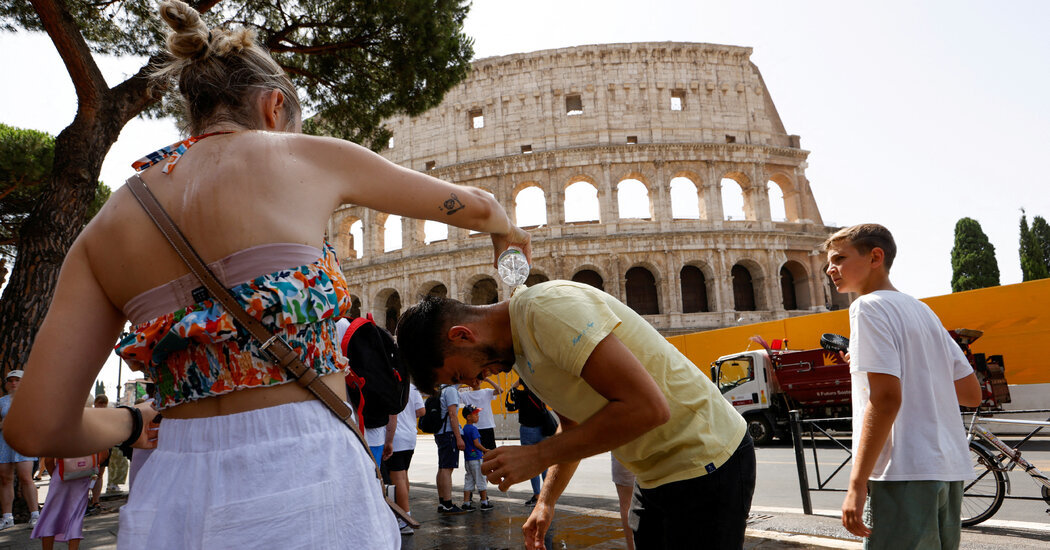
Europe, the world’s fastest-warming continent, is headed for another scorching summer, meteorologists warn. And travelers, once again, are heading to the hot spots.
Last year, large parts of southern Europe experienced prolonged periods of extreme heat with temperatures reaching 118 degrees and lasting up to two weeks or more. The sweltering conditions upended vacations throughout the summer season as visitors collapsed from heat exhaustion at crowded tourist sites, and wildfires led to evacuations in Greece, Italy and Spain.
“Our computer models are in good agreement that it’s going to be another unusually hot summer, especially during late July through August,” said Todd Crawford, vice president of meteorology at Atmospheric G2, a weather and climate intelligence firm based in Manchester, N.H. The company expects the magnitude of the heat to be similar to 2022, the hottest summer ever recorded in Europe, with the most anomalous heat projected in the south, in popular countries for travelers like Greece, Croatia and Italy.
Since 1991, Europe has been warming at twice the global average, and 23 of the 30 most severe heat waves in Europe since 1950 have occurred since 2000, with five in the last three years, according to the World Meteorological Organization. The European Union’s Copernicus Climate Change Service said several factors contribute to the continent’s vulnerability, including the proportion of European land in the Arctic — the fastest-warming region on earth — and changes in atmospheric circulation.
Yet despite the forecast and increasing trend of excessive summer heat, demand is still high for destinations where temperatures reached 100 degrees or higher in recent summers. Overall, U.S. demand for travel to Europe has increased since last year, according to the travel site Hopper. Rome, Paris and Athens are among the most searched cities out of billions of annual searches for summer vacations on Kayak and Expedia.
“The destinations are being booked again, and what really characterizes people is how quickly they forget and push back negative experiences,” said Stefan Gössling, a professor who researches tourism and climate change at Linnaeus University in Sweden. “People who were caught in life-threatening situations like the wildfires may reconsider where they travel, but for the broader population, we are not yet seeing a big change in decision-making because of the heat.”





